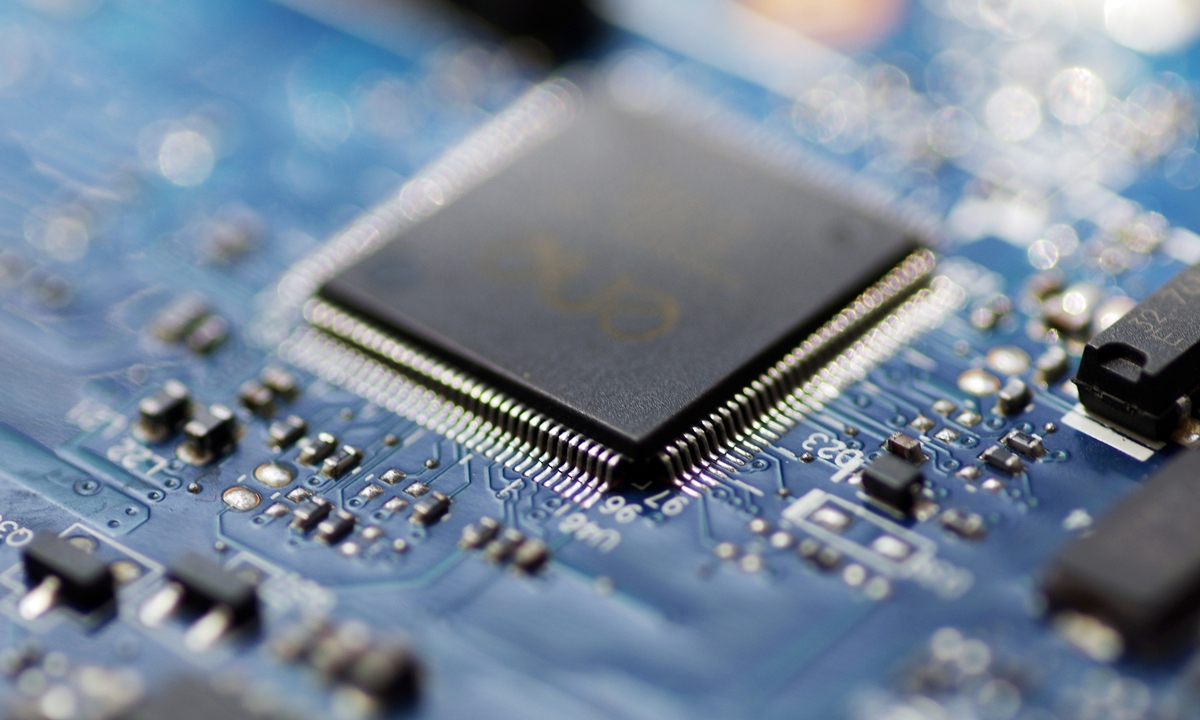TSMC’s new US plant another warning to mainland chipmakers to be self-reliant
By GT staff reporters Source: Global Times Published: 2020/12/24 21:14:33

Chip File photo: VCG
Taiwan Semiconductor Manufacturing Co (TSMC), the world's largest contract chipmaker, has started hiring for its first US plant in 20 years, media reported.
Analysts said that TSMC's move comes partly from US pressure and partly from market demand and technical resources. They added that this development should be another warning for Chinese mainland chipmakers to be self-reliant as soon as possible.
Construction will start next year in the US state of Arizona, with an investment of $12 billion, and the company will hire over 600 engineers and executives, of whom 300 will be fresh graduates, the Nikkei reported on Wednesday, citing TSMC Chairman Mark Liu.
Analysts said that there will be an impact on the supply of chips to Chinese mainland companies, but from the US crackdown rather than a single company. The US crackdown remains the sword of Damocles hanging over the industry's head. To be self-reliant, Chinese mainland enterprises must abandon the speculative purchases of technology, they suggested.
"Controlling the production of advanced chips is equivalent to occupying the advantage of future technology," Zhang Xiaorong, director of the Beijing-based Cutting-Edge Technology Research Institute, told the Global Times on Thursday.
On May 15, the US Department of Commerce announced that it was extending Huawei's temporary license for another 90 days to August 13, while it slapped a ban on licenses to stop TSMC from making chips for Huawei. On the same day, TSMC announced plans to build a 5-nanometer wafer plant in Arizona that will begin production in 2024, with a monthly capacity of 20,000 wafers.
In terms of the license ban, an industry practitioner, who declined to be identified, told the Global Times that TSMC is the manufacturer for US chip designer Xilinx whose products are used in F-35 fighter jets, and there are fears that technology and data could be leaked to the Chinese mainland.
The person also noted that apart from the large global share taken by TSMC, its world-beating manufacturing process has also touched a nerve in the US, as products including Apple's iPhone12, MediaTek's Breguet 1000 and Qualcomm's Snapdragon 865, rely on TSMC's manufacturing technology and mass production of 5-nm chips.
Zhou Xibing, a financial writer who follows Huawei closely, said that due to persisting China-US trade friction, TSMC had to make a choice under US pressure.
"Technology acquisition is another important factor. If a plant is built in the US, access to new technologies will be more extensive. But most importantly, the US is the largest market for TSMC in terms of revenue," Zhou told the Global Times on Thursday.
According to the financial reports of TSMC, it gets about 65 percent of its revenue from the US.
TSMC and the Phoenix city government in Arizona last month reached an agreement, under which TSMC will build a new plant and create more than 1,900 full-time jobs. The company has already invested $3.5 billion for a subsidiary in Arizona, Reuters reported in November. In return, Phoenix will provide $205 million in city funds for infrastructure, according to media reports.
TSMC could not be reached as of press time.
Newspaper headline: TSMC’s new plant in US a warning to mainland chipmakers: analysts
Posted in: INDUSTRIES,COMPANIES